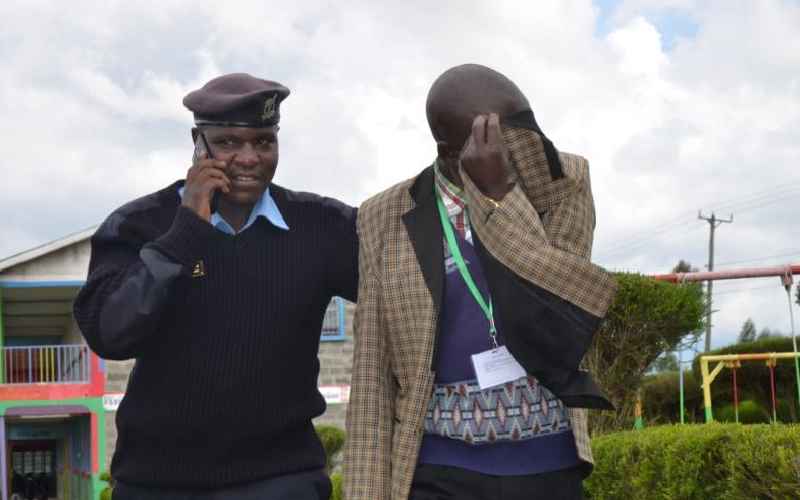
A police officer escorts the KCPE Exam Center Manager at Hezta School in Olkalou Nyandarua County to a police vehicle after the school was suspected that they were stealing exams. [John Githinji, Nyandarua]
It is sad that examination centres in Kenya have become like war zones – police and other law enforcement officers armed to the teeth and in full fatigue. In recent years, nearly all top government leaders – Cabinet Secretaries, Principal Secretaries, senior county officials – have been mobilised to oversee the exams, especially the opening of the exam packages.